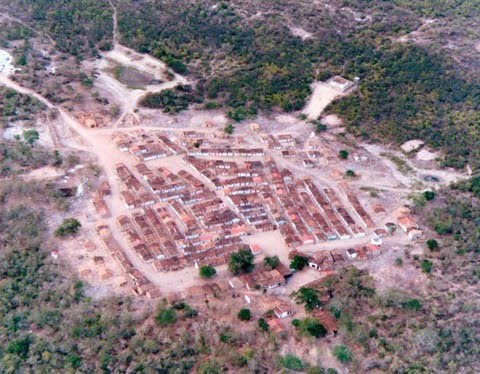Introduction
Every year, from September to November, in one of the cities of northeastern Brazil, something takes place that is shrouded in secrecy. This is the Orikuri ritual, practiced by the indigenous Funio people. Nothing is known about it, and no outsider can learn what happens during these three months. The local people do not speak about it, and the only thing that is certain is that during this period, the Funio live in the city, eat, sleep, work, but also follow sacred traditions that remain hidden.
What makes this ritual unique? Why is its essence kept secret? What philosophical and anthropological theories can be formed about its meaning?
This article explores the role of secrecy in spiritual practices, examines the cultural context of the Funio people, and attempts to approach an understanding of a ritual that no one speaks about.
1. The Funio People and Their Resistance to Globalization
The History of the Funio People
The Funio are one of the few indigenous peoples of Brazil who have managed to preserve their language and culture. They reside in the municipality of Águas Belas and are known for their independence from external influences. Unlike many other indigenous groups, the Funio have not been completely assimilated and continue to maintain a traditional way of life, blending it with elements of the modern world.
One of the key reasons for their cultural resilience is the Orikuri ritual, which, in all likelihood, plays a fundamental role in strengthening their identity.
2. Orikuri – The Ritual That Is Not Spoken About
The Phenomenon of Silence
What makes the Orikuri ritual unique? The complete absence of information.
✔ No one from the Funio reveals what happens during these three months.
✔ The only known fact is that they live in the city, but during this time, the city transforms into something else.
✔ People continue to work outside the city, but once they return, they enter a closed spiritual space.
✔ Even among Brazilian anthropologists and researchers, there is almost no reliable data about this ritual.
This phenomenon is unusual even among indigenous groups, most of whom are willing to share their ceremonies with scholars and researchers.
Why the Secrecy?
In many cultures, secrecy is an essential part of a ritual. If a ceremony is performed away from outsiders, it remains untouched by external influences and retains its original power.
✔ In traditional societies, knowledge has power, and not everyone is allowed to possess it.
✔ Secret rituals are often linked to initiation, altered states of consciousness, and the transmission of sacred knowledge.
✔ Perhaps the Orikuri ritual involves access to profound spiritual wisdom that cannot be shared with outsiders.
3. Theories About the Meaning of Orikuri
Theory 1: Communal Living as a Form of Initiation
✔ Three months of isolation in the city may be a form of tribal unity and reinforcement of cultural identity.
✔ The Orikuri ritual could be a rite of passage, where younger members undergo training under the guidance of elders.
✔ Such a prolonged ritual could involve psychological and spiritual transformation, shaping a collective consciousness.
Theory 2: Connection with Ancestors and Spirits
✔ Perhaps, during these three months, the Funio believe that the city becomes a place of spiritual presence.
✔ Many indigenous rituals involve the belief that ancestral spirits return to guide the living.
✔ The secrecy surrounding the ritual could be linked to a sacred law of silence, which exists in many esoteric traditions.
Theory 3: Ritual Time and an Alternative Perception of Reality
✔ It is possible that, during this period, the Funio experience time differently, in a way that differs from conventional reality.
✔ Anthropologists often refer to the concept of “ritual time”, where one’s perception of reality shifts.
✔ Life in the city becomes part of a sacred order, which must not be disrupted by external interference.
4. Orikuri and the Philosophy of Secret Knowledge
Why Are Secret Rituals Important?
In a world where almost everything can be found on the internet, secrecy takes on a special significance. Secret rituals serve to:
✔ Preserve knowledge in its purest form.
✔ Create a sense of belonging among those initiated into the tradition.
✔ Deepen the mystical experience, which cannot be conveyed through words.
Secrecy protects the sacred aspects of culture from commercialization and superficial interpretations.
5. What Makes Orikuri Unique?
✔ It lasts for three months, making it one of the longest-known rituals in the world.
✔ It takes place in a city, rather than in the forest, as is typical for many shamanic practices.
✔ No one speaks about it, making it one of the most enigmatic rituals in Brazil.
Conclusion
Orikuri is not just a ritual—it is the foundation of the Funio people’s identity. It preserves their connection to tradition, their ancestors, and each other. No one knows what happens during these three months, but perhaps that is the true source of its power.
In a world where secrets are disappearing, Orikuri remains incomprehensible, mysterious, and a living testament to the idea that some knowledge must remain hidden. Perhaps, this is the ultimate truth of the ritual.
